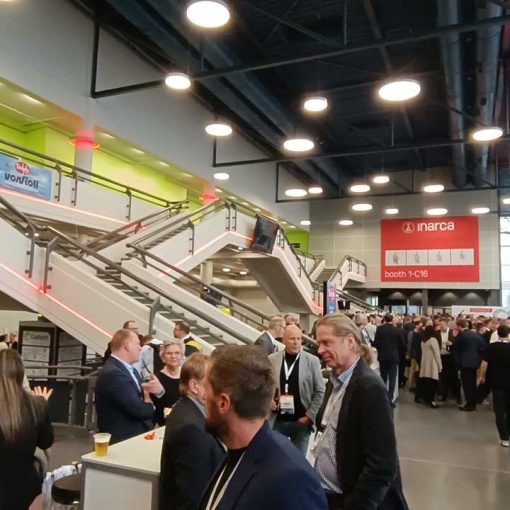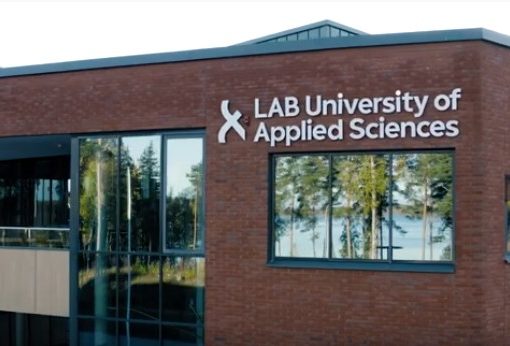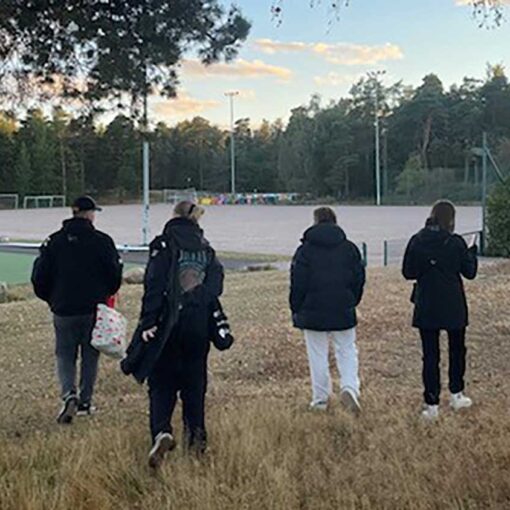In recent years, European industry has moved towards a circular economy. This has accelerated the research and development process in the field of novel materials, drawing attention to mycelium, a three-dimensional interconnected network formed by three fungal cells.
Based on Maximino C. Ongpeng et al. (2020, 1), mycelium is a highly adaptive material with excellent bioremediation capabilities and mechanical properties, such as structural integrity and biodegradability. It is a preeminent thermal and acoustic insulator, fire retardant, and lightweight material applicable in various industries, from apparel production to construction. Moreover, mycelium can grow on the industrial side streams, redeveloping waste into novel materials.
![[Alt text: a bunch of mushrooms on the ground.]](https://blogit.lab.fi/labfocus/wp-content/uploads/sites/8/2025/05/225_2025_Product-market-fit-roadmap-etc-1024x603.jpg)
Competition in the mycelium-based materials industry
Various European companies have already integrated mycelium-based materials. For example, company Mogu (2025) has been producing mycelium-based acoustic wall panels and flooring for the past ten years. The other company, Biohm (2025), is a research and development company that provides solutions based on the mycelium’s properties, such as composites and triagomy.
Start-up studio as the model to develop bio-based products
A start-up studio model enables the simultaneous development of multiple start-up companies. It is an umbrella organization that has a core team that supervises the creation of various products oriented to different markets. (Szigeti’s 2019, 9–10.) This system accelerates the product-market fit achievement for the material development company; if one project fails, it is possible to relocate the resources towards a more prosperous solution.
Finland as the platform for mycelium-based materials development
Finland’s legislation, social progress, and waste management practices make it an ideal platform for material development. The new Climate Act (423/2022) aims for carbon neutrality by 2035. Finland’s Regional Social Progress Index is over 120, one of the highest in Europe. Additionally, the commercialization of mycelium-based materials presents a market opportunity for young organizations.
Product-market fit roadmap
Valina (2025) conducted a study to uncover a product-market fit roadmap for mycelium-based materials of a Finnish start-up studio that develops novel bio-based solutions. The roadmap was built based on Coelen’s (2024) product-market fit scale, which consists of four main parts.
As described by Valina (2025, 45–46), the process is initiated by gathering data about the issues of potential customers that can be sold through the mycelium-based product. Thereby, the first steps of product-market fit development encompass interviews with potential customers and individuals experiencing problems, followed by communication with engaged individuals and organizations.
Afterwards, when the exigencies of potential customers are identified, these demands are transformed into requests that lead to the free pilot project or research and development process. After the product is created, all the required testing should be conducted. Therefore, the applicability and usability of the solution can be assessed as part of the free pilots, together with the potential clients.
If the free pilot indicated that implementing the mycelium-based products benefits the customer, a paid pilot could be started. The main goal of this stage is to maintain the foundation for the repeatable sales process. During this phase, the poll of the potential partners is smaller than during the free pilot; however, these organisations are more committed to implementing mycelium-based solutions and are willing to pay for it.
The final stage of the roadmap for achieving the product-market fit is establishing a repeatable sales process. At this phase, the demand for the mycelium-based solution is validated, making the technology more attractive for investments. However, to achieve the product-market fit, the repeatable sales process should be established with multiple clients. If it cannot be accomplished, the process should be restarted.
Authors
Sofia Valina is graduating from the LAB University of Applied Sciences, Bachelor’s Degree Programme in International Business. She is working for a start-up studio that develops variable biobased materials, turning waste into value.
Sari Suominen works as Senior Lecturer at LAB University of Applied Sciences in Lahti.
References
Biohm. 2025. Website. Cited 4 May 2025. Available at https://www.biohm.co.uk/
Climate Act (423/2022). Finlex. Cited 4 May 2025. Available at https://www.finlex.fi/en/legislation/2022/423
Coelen, J. 2024. The Product-Market Fit Scale. Cited 4 May 2025. Available at https://iwantproductmarketfit.substack.com/p/the-product-market-fit-scale
Maximino C. Ongpeng, J., Inciong, E., Sendo, V., Soliman, S. & Siggaoat, A. 2020. Using Waste in Producing Bio-Composite Mycelium Bricks. Cited 27 March 2025. Primo.
Mogu. 2025. Website. Cited 4 May 2025. Available at https://mogu.bio/about/
Szigeti, A. 2019. Startup Studio Playbook. Cited 7 April 2025. Available at https://www.startupstudios.com/startup-studio-playbook#wf-form-Subscribe.
Valina, S. 2025. Roadmap to achieve the product-market fit for mycelium-based materials : journey of a start-up studio. Bachelor’s thesis. LAB University of Applied Sciences, Faculty of Business and Hospitality Management. Lahti. Cited 15 May 2025. Available at https://urn.fi/URN:NBN:fi:amk-2025051411867
zoosnow. 2020. Svetlana. Mushrooms, nature, forest, a lot of. Pixabay. Cited 8 May 2025. Available at https://pixabay.com/photos/mushrooms-nature-forest-a-lot-of-5395714/




